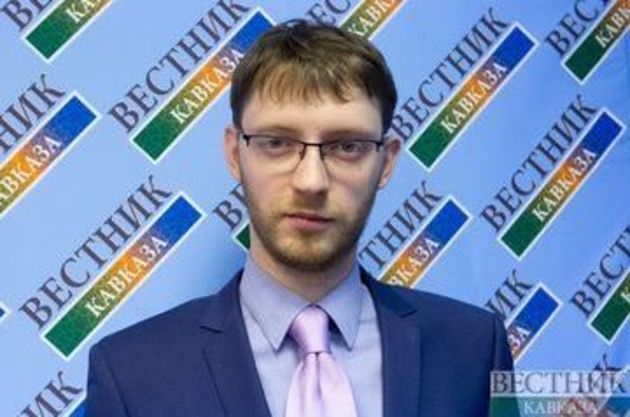The Constitution is the main law of a sovereign state, the norms reflected in it are the foundation for the relations within society. However, these standards should reflect the current changes in the state, Vestnik Kavkaza analyst Matvey Katkov said in the National Question on Vesti.FM today.
The National Question is a weekly program on Vesti.FM, during which various aspects of national relations in Russia and CIS countries are discussed. Today's program was dedicated to amendments to the 68th and 69th articles of Russia’s Constitution.
According to the expert, the development of Russian society in the post-Soviet period resulted in the need for the amendments. “It is important that these changes taking place in society are reflected in the Constitution in order to avoid a strong discrepancy between de jure and de facto. On the one hand, of course, the norms enshrined in the Constitution become law for the whole society going down to the local, regional level. But, on the other hand, it is equally important to take into account regional processes, to respond to them in time, by amending the Basic Law. This balance between the central government and regions ensures political stability of any country,” he said.
Matvey Katkov said all these principles are applicable to the 68 article’s amendments. Paragraph 1 reads:“ The state language of the Russian Federation throughout its territory is Russian as the language of a state-forming people that is a part of the multinational union of equal peoples of the Russian Federation. ”In this case, the concept of ”state-forming people” should not be taken literally as“ ethnos ” We are talking about building a civil nation, and for this, it is necessary to highlight some general universal criterion that would make it possible to unite different peoples and ethnic groups, to emphasize their commonality within a single state. In this case, language serves as such a criterion. Language is important not only as part of the culture, and above all, as a universal means of communication within the state. It is about consolidating the status of language for native speakers recognized as the state-forming people,” the expert explained.
Thus, the analyst added, the concepts of “language” and “people” in this case must be perceived not from the ethnocultural, but from the state-political point of view. At the same time, he emphasized that this wording does not infringe on the rights of the peoples of Russia, as paragraph 2 explains that the republics have the right to establish their own state languages, which are used along with the state language by state authorities and local self-government.
“Thus, we are talking about the integration of society, and the Russian language is given a key role in this process,” the expert concluded.






